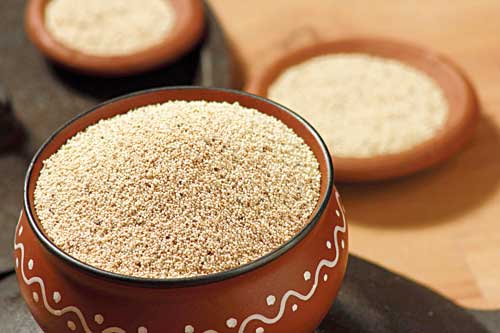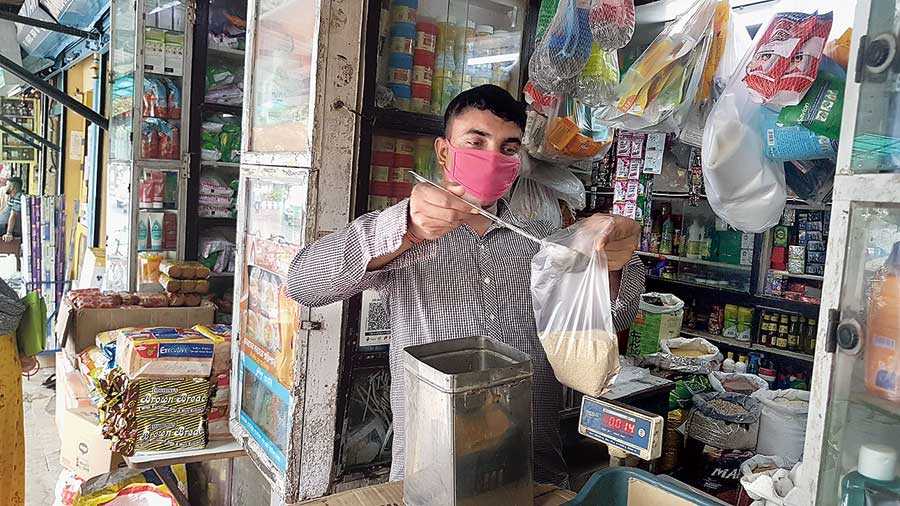Alu Posto, Posto Bora, Posto Bata, Deem Posto… People are thinking twice about cooking their favourite dishes now that the price of poppy seeds has touched Rs 2,000 a kilogram.
Grocers across the township say the price of the posto has been rising steeply for the past couple of months and that many buyers were being forced to reduce consumption.
“Those who would buy 100g previously are buying 50g now, those buying 50g are buying 25,” says Gopal Chakraborty of Dashabhuja Bhandar in CK Market. He sells packaged poppy seeds from brands like JK (selling 100g at about Rs 200) as well as a loose variety, that had touched Rs 210 for 100g a while back. It has returned to Rs 200 now.
“We are selling between one and two kilos of poppy seeds a month now. This is way below what we used to a few months ago and it’s clearly due to the price rise,” says N. Nayak of Ma Sabita Bhandar in FD Market.
Arun Ghosh of Baisakhi’s New Lokenath Bhandar has never seen such inflated prices of poppy seeds. “For many ghotis, posto is as important as fish, and come to think of it, the prices are almost as high as fish these days. No wonder many unscrupulous traders are resorting to adulteration now. They are mixing two kilos of sooji (that costs about Rs 80 a kilo) to a sack of posto.”
He asks customers to bite a few grains of loose posto before buying as a test. “If they burst, it’s real posto. If it pastes out and sticks to your teeth, it’s adulterated,” Ghosh teaches.
Time was when residents would buy loose posto from this Baisakhi grocery store and send relatives in the US. “And now sales are down to half. With job losses and salary cuts how much can people spend on fancy food? And it’s not like we vendors are here to do charity either. We need a profit mark up of five or six per cent to make our business viable,” says Ghosh.
AE Market’s New Variety Stores calls itself a grocery store for chefs and restaurants. “We keep rare and expensive items you won’t get anywhere else in Salt Lake,” says Prasenjit Pramanik, citing a variety called Afghani Posto that seems to be of the highest quality. “Even in Burrabazar, very few shops stock this. Last year, we used to buy this for Rs 1,000 a kilo, six months back it was Rs 1,200. Now we are buying it for Rs 2,000 and are forced to sell it at Rs 2,100 or 2,200.”

Customers who taste this posto once, he claims, are not satisfied eating anything else so they are continuing to buying it. The quantity, however, is much less.
The most frustrating part for traders is not having clear answers as to why prices are skyrocketing. Nor do they have an indication of which way prices will go in the near future.
“We are small players. Neither do we have the authority to ask suppliers about price rise nor do they offer an explanation. They simply quote the price and ask us to take it or leave it. In the bargain, it is we who have to put up with grumbling customers,” says Asim Kumar Das of Bapi Stores, CE Market.
Then again, grocery stores in EC Market say customers have not reacted sharply to the price rise. “It’s true that posto prices are rising but it has been gradual. People are not feeling the pinch as they usually buy posto together with other household items and inflation is the general trend,” says Dulal Pal of New Joyguru Bhandar.
Pal is more worried about online grocery sites eating into their business. Online, price of posto is about Rs 195 for 100g — just five rupees less than the rate at block markets — but the convenience of having items home delivered makes a big difference to customers, he says.











